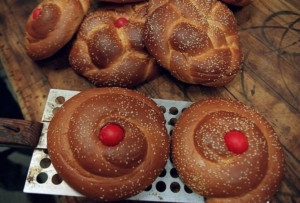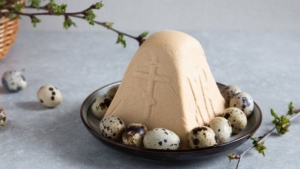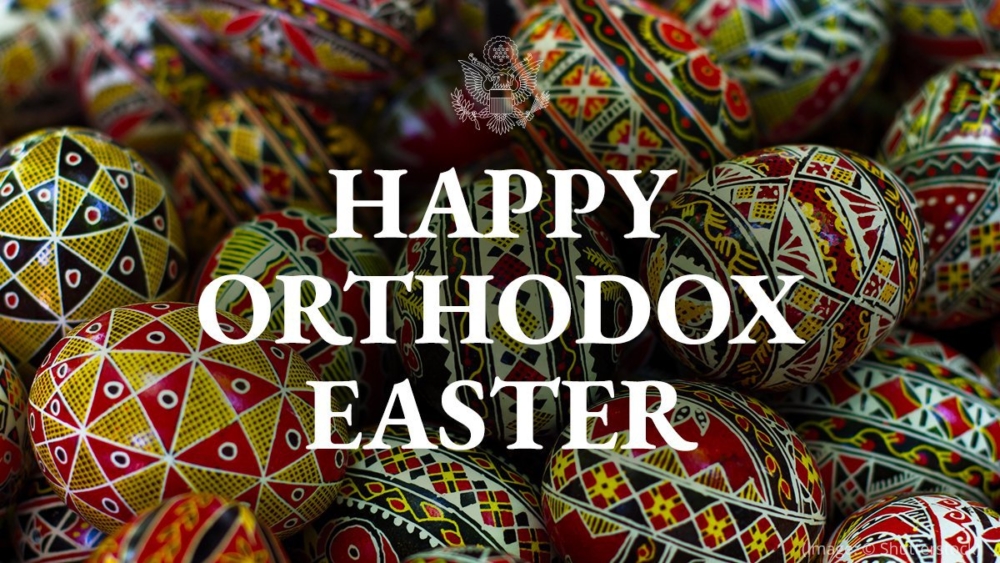This phrase means, “Christ is Risen
Orthodox Easter
Sunday, April 24th
Orthodox Easter is celebrated on the Sunday after the first full moon after Passover (between April 4th and May 8th.) For millions of people around the world, Easter this year falls on Sunday, April 24th.
Orthodox Christians celebrate Easter later than most in the western world. Because they use a different calendar to work out what day Easter should fall on, Orthodox churches in some countries including Greece, Cyprus and Romania base their Easter date on the Julian calendar.
The Julian Calendar was designed by Julius Caesar in 45 BC – basing a year on the time it takes the Sun to go around the Earth. The Gregorian Calendar was created by Pope Gregory in 1582 to fix some of the glitches in the Julian Calendar as astronomy became more accurate.
In eastern Orthodox Christianity, the preparations begin with Great Lent, 40 days of reflection and fasting, which starts on Clean Monday and ends on Lazarus Saturday. (Monday, March 7th, and ends on Saturday, April 23rd)
Clean Monday refers to believers being cleaned of their sins during Lent. Lazarus Saturday falls eight days before Easter Sunday and signifies the end of Great Lent, although the fasting continues into Holy Week.
Next comes Palm Sunday, one week before Easter, remembering the entry of Jesus Christ into Jerusalem, followed by Holy Week, which ends on Easter Sunday.
Also in the eastern Orthodox Church, Easter must happen after the Jewish festival of Passover – as in the Easter story, Jesus celebrates Passover before his death.
Going to church is obviously an important part of the celebrations and important services start from Good Friday. The most important prayers are in the early hours of Easter Sunday when celebrations begin, church bells ring and fireworks and crackers go off to mark Christ’s resurrection.
After the fasting of Lent, traditions often revolve around food.
In Greece, Orthodox Christians traditionally eat roasted lamb on a barbecue spit and Tsoureki, a sweet Easter bread.

GETTY IMAGES Tsoureki Greek Bread For Greek Easter
They also break their fast with a traditional soup called Magiritsa, which is made of lamb, rice and dill before the main feasting begins on Sunday.
Serbian Orthodox families traditionally enjoy appetizers of smoked meats and cheeses, boiled eggs and red wine. The Easter meal consists of chicken noodle or lamb and vegetable soup followed by spit-roasted lamb.

GETTY IMAGES Magiritsa Easter soup
In Russia Orthodox Christians break their fast with a traditional Paskha Easter cake.
As in the western Church, eggs are a symbol of Easter and of new life. At Easter, eggs are dyed red to represent the blood of Jesus that was shed on the cross for the redemption of all men.

GETTY IMAGES A traditional Paskha cake

